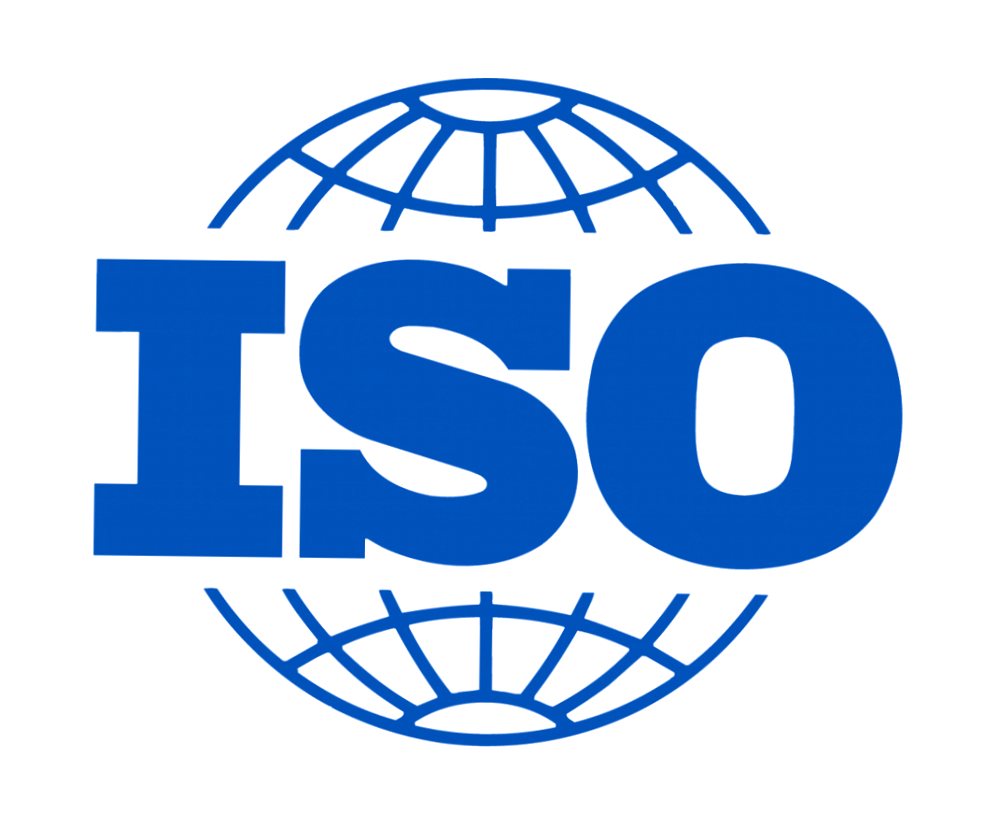ISO Certification

ISO certification refers to a formal process where a company or organization is recognized as meeting the standards set by the International Organization for Standardization (ISO). These standards ensure that products, services, or systems are safe, reliable, and of high quality. ISO standards cover various industries, including manufacturing, technology, and healthcare.
Here are some of the most common ISO certifications:
ISO 9001 (Quality Management System): Focuses on ensuring consistent quality in products and services and improving customer satisfaction
ISO 14001 (Environmental Management System): Helps organizations minimize their environmental impact through sustainable practices
ISO 45001 (Occupational Health and Safety): Aims to reduce workplace risks and improve safety measures
ISO/IEC 27001 (Information Security Management System): Ensures that an organization’s data security practices meet global standards to protect information assets
ISO 22000 (Food Safety Management System): Focuses on food safety management throughout the food supply chain
. ISO 50001 (Energy Management System): Provides a framework for organizations to manage and reduce their energy consumption.
To become ISO certified, a company typically undergoes an audit by a third-party certification body. This audit assesses whether the company’s processes and systems meet the specific ISO standard. Once certified, the organization must maintain compliance through regular audits to keep its certification
ISO 31000 (Risk Management): Provides principles and guidelines for managing risk, helping organizations to identify, assess, and mitigate potential risks across various areas of operations
ISO 22301 (Business Continuity Management System): Focuses on maintaining the ability to continue operating during and after disruptive incidents, such as natural disasters or cyber-attacks
ISO 20000 (IT Service Management): Specifies requirements for establishing, implementing, and improving an IT service management system (similar to ITIL practices), ensuring high-quality IT service delivery
. ISO 13485 (Medical Devices): Focuses on the quality management systems specific to the design, production, and distribution of medical devices, ensuring they meet regulatory standards
ISO 17025 (Laboratory Testing and Calibration): Specifies the requirements for the competence of testing and calibration laboratories, ensuring they produce reliable and valid results
ISO 37001 (Anti-Bribery Management System): Establishes guidelines for preventing, detecting, and responding to bribery in the organization. This certification helps organizations implement policies against corruption
. ISO 19600 (Compliance Management): Provides guidance for establishing, developing, and maintaining an effective compliance management system to ensure adherence to laws, standards, and regulations
. ISO 44001 (Collaborative Business Relationships): Specifies requirements for effective business collaboration, ensuring mutually beneficial relationships between companies and their partners or suppliers
ISO 28000 (Supply Chain Security Management): Focuses on improving the security of supply chains, especially in industries where products may face risks like theft, terrorism, or other disruptions
. ISO 37002 (Whistleblowing Management Systems): Establishes guidelines for organizations to implement and maintain effective whistleblowing systems, promoting transparency and ethical behavior
ISO 21001 (Educational Organizations Management System): Ensures that educational institutions meet the specific needs of learners by improving the quality and effectiveness of their management systems
ISO 44006 (Circular Economy): Provides guidelines for integrating circular economy principles into business models to promote sustainability, reduce waste, and optimize resource use.
These ISO certifications help organizations meet global standards, improve internal processes, reduce risks, and build trust with customers, partners, and regulators. Like all ISO standards, obtaining certification generally requires a formal audit process by a third-party certification body, which checks compliance with the specific standard. Regular audits are also necessary to maintain the certification


